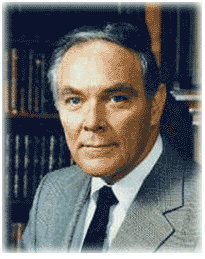Education for advancement
Alexander Meigs Haig Jr. was born on December 2, 1924, in Philadelphia, Pennsylvania. As a young man, he grasped the value of obtaining an excellent education. He held that thought until graduation from West Point Military Academy in 1947 — and beyond.
Haig served with distinction in the Korean War, beginning in 1950. He was reassigned in 1951.
Haig's time in the military bolstered his conviction that education would take him further on his career path. In 1960, he graduated from the Naval War College. The following year, Haig received a master's degree from Georgetown University, and set out to find the new career that he was working for all that time.
 A career trajectory
Drawing on his combat experience and education, Haig won the post of Assistant to the Secretary of the Army in 1964, then attended the Army War College in 1966. He was called away to serve in the Vietnam War from 1966 to 1967. The added combat experience burnished his background.
In 1969, Haig met Dr. Henry Kissinger, the national security advisor to President Richard M. Nixon. Kissinger liked the way Haig got things done and knew that his background would serve him well, when he appointed him to be his military advisor on the National Security Council staff.
In 1970, Haig's experience and leadership skills paid off again when he was named the Deputy Assistant to the President for National Security Affairs. Haig assisted South Vietnamese president Nguyen Van Thieu in negotiating cease-fire talks in 1972, to end the war in Vietnam.
White House Chief of Staff
Although he enjoyed his position, Haig took an offer in 1973 to be the White House Chief of Staff for President Nixon. His starting role in the position was to assist in the "crisis management" of the Watergate Scandal. He was thought (erroneously) by many to be "Deep Throat," the notorious informer to the press during the scandal.
NATO commander
Haig resigned from the position in 1974 to resume his military career. His aspirations were rewarded by promotion to four-star general and an appointment as Supreme Allied Commander Europe (SACEUR) of the North Atlantic Treaty Organization (NATO) forces. He remained in Europe until 1979, when he returned to the United States.
Secretary of State
Putting his military career behind him, Haig reentered politics and after reestablishing old contacts, he met with President Ronald Reagan to discuss his future. The president quickly nominated Haig for Secretary of State.
During his time as secretary, Haig became more conversant with Cold War geopolitics. His sudden resignation in 1982 was put down to foreign policy disputes, especially with Defense Secretary Caspar Weinberger.
Post-military and public service life
In 1984, Haig wrote a book about the Reagan administration, Caveat: Realism, Reagan, and Foreign Policy. The book was well received, and, fueled by his deep-seated ambition, Haig ran unsuccessfully for the Republican presidential nomination in 1988.
Haig came out with another book in 1992, Inner Circles: How America Changed the World. Aged 80 as of 2005, the former soldier and public servant is the moderator of a TV magazine, World Business Review.
A career trajectory
Drawing on his combat experience and education, Haig won the post of Assistant to the Secretary of the Army in 1964, then attended the Army War College in 1966. He was called away to serve in the Vietnam War from 1966 to 1967. The added combat experience burnished his background.
In 1969, Haig met Dr. Henry Kissinger, the national security advisor to President Richard M. Nixon. Kissinger liked the way Haig got things done and knew that his background would serve him well, when he appointed him to be his military advisor on the National Security Council staff.
In 1970, Haig's experience and leadership skills paid off again when he was named the Deputy Assistant to the President for National Security Affairs. Haig assisted South Vietnamese president Nguyen Van Thieu in negotiating cease-fire talks in 1972, to end the war in Vietnam.
White House Chief of Staff
Although he enjoyed his position, Haig took an offer in 1973 to be the White House Chief of Staff for President Nixon. His starting role in the position was to assist in the "crisis management" of the Watergate Scandal. He was thought (erroneously) by many to be "Deep Throat," the notorious informer to the press during the scandal.
NATO commander
Haig resigned from the position in 1974 to resume his military career. His aspirations were rewarded by promotion to four-star general and an appointment as Supreme Allied Commander Europe (SACEUR) of the North Atlantic Treaty Organization (NATO) forces. He remained in Europe until 1979, when he returned to the United States.
Secretary of State
Putting his military career behind him, Haig reentered politics and after reestablishing old contacts, he met with President Ronald Reagan to discuss his future. The president quickly nominated Haig for Secretary of State.
During his time as secretary, Haig became more conversant with Cold War geopolitics. His sudden resignation in 1982 was put down to foreign policy disputes, especially with Defense Secretary Caspar Weinberger.
Post-military and public service life
In 1984, Haig wrote a book about the Reagan administration, Caveat: Realism, Reagan, and Foreign Policy. The book was well received, and, fueled by his deep-seated ambition, Haig ran unsuccessfully for the Republican presidential nomination in 1988.
Haig came out with another book in 1992, Inner Circles: How America Changed the World. Aged 80 as of 2005, the former soldier and public servant is the moderator of a TV magazine, World Business Review.